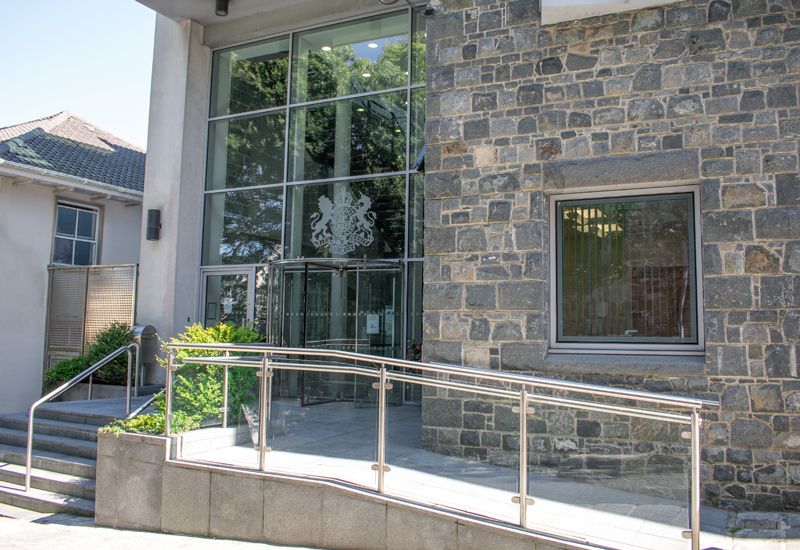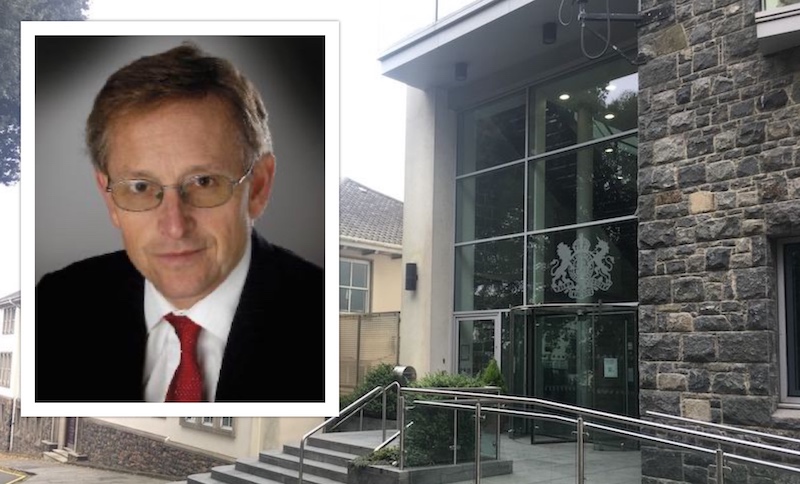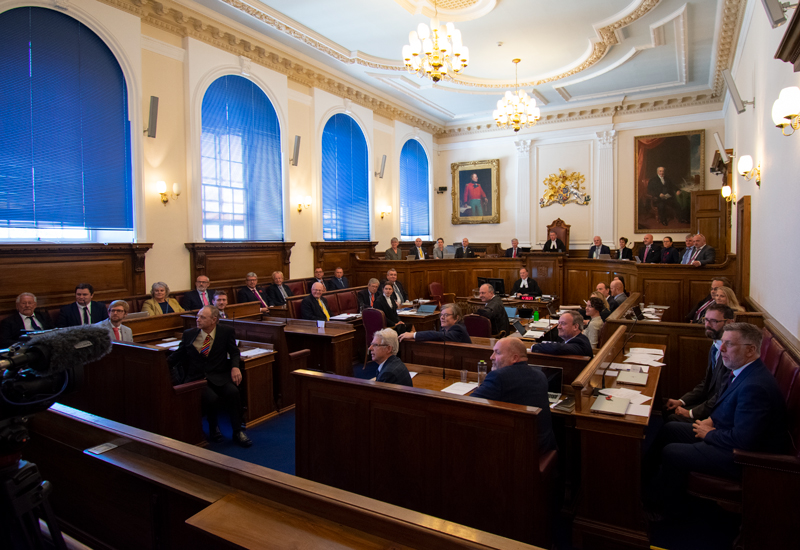


A woman from the UK has failed in her bid to challenge the authority of Guernsey's key covid emergency decision-making body.
Seeking a judicial review, Louise Le Poidevin claimed there was not a sufficient emergency in the island to warrant use of the Law's emergency powers and that the Civil Contingencies Authority was using those powers improperly.
The case followed Ms Le Poidevin being required to self-isolate when she arrived in Guernsey to visit family in August.
The case for judicial review was heard by Lieutenant Bailiff Her Honour Hazel Eleanor Marshall QC. The Civil Contingencies Authority, which is the States' committee empowered by the Civil Contingencies (Bailiwick of Guernsey) Law, 2012, asked for Ms Le Poidevin's claim to be dismissed on multiple grounds.
Since March 2020, when it was prompted to act by the covid-19 pandemic, the Authority has been required to renew its emergency regulations on a monthly basis. These regulations have included various restrictions on travel into the island and substantial legal and financial penalties for failing to comply.
Lt-Bailiff Marshall heard how Ms Le Poidevin came to Guernsey on 29 August during the ninth iteration of the Authority's emergency regulations.

Ms Le Poidevin decided not to be vaccinated against covid-19 and also refused a test on arrival in the island. Under the regulations in place at the time, she was required to self-isolate for 21 days.
“She is not, she wished to emphasise, an 'anti-vaxxer'," said Lt-Bailiff Marshall. "But she does take the view that the anti-covid vaccinations are experimental and she does not wish to participate in what she sees as a global experiment in vaccination.
“She also, she made very clear, resents the form of coercion which, in her view, is what is being applied to people with regard to travel and movement restrictions dependent on their being vaccinated or not being vaccinated.”
When Ms Le Poidevin applied for judicial review of the Civil Contingencies Law, it was pointed out that her application would most likely be dismissed because the Law was enacted in 2012 as primary legislation.
This means it “lays down the possibility of emergency regulations being made and confers the power to do so on the Civil Contingencies Authority,” said Lt-Bailiff Marshall.
Lt-Bailiff Marshall gave the claimant a chance to explain the substance of her claim. During the hearing, she formed two grounds of challenge: no sufficient emergency and improper exercise of power.

Ms Le Poidevin asserted that Guernsey had not experienced an emergency of a scale to justify the involvement of the Civil Contingencies Authority or its use of emergency regulations. In addition, she produced a bundle of documents to support her opposition to various aspects of the States' management of the pandemic, including alleged exaggerations about the number of deaths attributable to covid-19 and alleged flaws of PCR tests.
Lt-Bailiff Marshall said the claim that there was not a serious emergency was not a viable argument.
“This is because the point is that the power of the CCA to deal with an emergency and to make regulations rests also on the fact that there is, possibly, a potential emergency - in other words a situation where, if you do not make the regulations in question, a severe detriment to the health of islanders which then would be an emergency may well actually ensue," said Lt-Bailiff Marshall.
Ms Le Poidevin's claim that the Authority exercised its powers improperly was also dismissed.
“I emphasise that the question is not even whether the Authority could reasonably have made a different decision, but whether the decision which it actually did make was one which it could reasonably have made at all, in all the circumstances and taking into account and balancing all the information which it reasonably had or should have had," said Lt-Bailiff Marshall. "In my judgment it would be an impossibly high hurdle to argue that it was not,” said Lt-Bailiff Marshall.
The claim was laid by Ms Le Poidevin in the first instance as a breach of the Human Rights (Bailiwick of Guernsey Law) 2020. She argued that quarantine is degrading. Lt-Bailiff Marshall disagreed.
“To suggest that a quarantine requirement, in appropriate circumstances, is either inhuman or degrading is absurd and is the kind of rhetoric which gets used when an argument is being advanced on an exaggerated or sensationalist basis," said Lt-Bailiff Marshall.
The application for judicial review failed and Lt-Bailiff Marshall refused permission for the claim to proceed.
Jersey's emergency decision-making throughout the pandemic has been governed by two key bodies: a panel of medics, experts and senior civil servants called STAC (the Scientific and Technical Advisory Cell), which advises the 'Competent Authorities Ministers' (CAM).
Made up of the Chief Minister, and Ministers of Health, Home Affairs, Economic Development, External Relations and Infrastructure, CAM has the final say on all covid-related policies and legislation.
The Treasury and Education Ministers are not statutory members of CAM, but were invited when the importance of their portfolios in relation to covid-19 measures became apparent.
Amid challenges from Scrutineers, the Chief Minister previously told Express that CAM will not be disbanded until the global crisis is over.

Pictured: Competent Authorities Ministers - External Relations Minister Ian Gorst, Economic Development Minister Lyndon Farnham, Chief Minister John Le Fondré, Health Minister Richard Renouf, Infrastructure Minister Kevin Lewis and Home Affairs Minister Gregory Guida.
While all of STAC's meeting minutes are made public, CAM has refused to release theirs to the public, arguing that Ministers need a "safe space" for discussions - something Express has been campaigning to change.
Recently, a step was made towards this, with States Members voting to approve the release of the minutes to the panel of politicians tasked with scrutinising the Government's approach to the pandemic.
Guernsey's CCA has also refused to make its meeting minutes public.
Comments
Comments on this story express the views of the commentator only, not Bailiwick Publishing. We are unable to guarantee the accuracy of any of those comments.